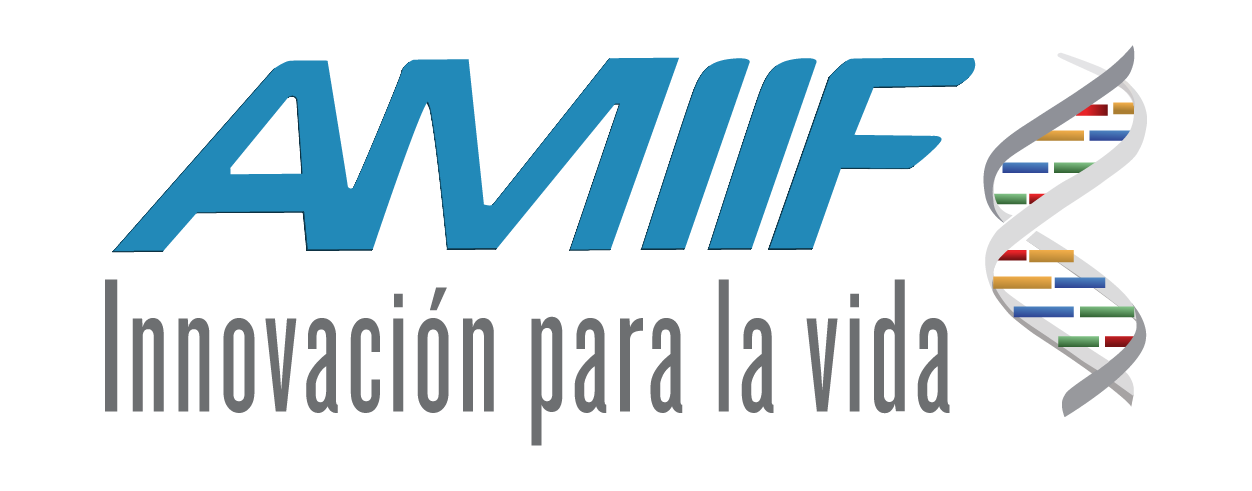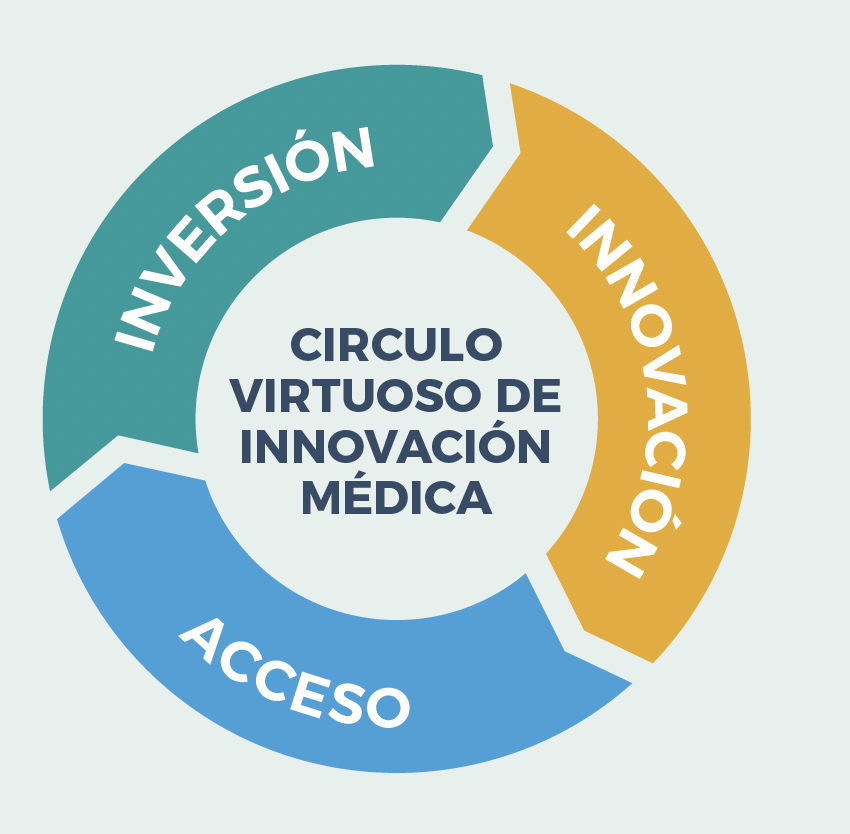Innovation only makes sense when it reaches people. That is why, I mean that the years of research and development, financial resources, and sleepless nights of hundreds of people who dedicate their lives to science and clinical research are only rewarded if we can offer solutions to meet the unmet healthcare needs of the Mexican population. Our industry directly affects people’s lives by changing the landscape of multiple diseases and achieving cures for many others. The products that AMIIF members research and develop change lives, just as our economic and social contributions have the power to change a nation.
To highlight the crucial role of innovation in medical progress and its contributions to society, we held the Seventh Annual AMIIF Innovation Week Edition on April 26-28, 2022. The event, Transformation of the healthcare sector: Pharmaceutical Industry Contributions, gathered leaders and representatives of the pharma world, decision-makers related to public health policies, and leading medical professionals.
During the three day-event, panels hosted discussions on matters of significant importance to public health in Mexico, including non-communicable diseases (NCDs) and gender, which served as the perfect setting for the National Institute of Public Health (INSP) to present its research project in collaboration with the George Institute of Australia, sponsored by AMIIF, on the Economic and health Impact of Non-Communicable Diseases on Women in Mexico.
One of the most important objectives of this study, which will be conducted over the next 18 months, is to complete an in-depth analysis of the economic and health burden of NCDs from a gender perspective, as part of a strategy to mitigate health inequalities and, as its ultimate goal, contribute to designing public policy and gender-sensitive programs aimed at improving health conditions.
Regulatory Reliance: An Area for Improvement in Mexico
Regulatory proceedings are a key element to improve public health and it is precisely in this area that our country requires vast improvement in terms of the period required for the health authorities to approve medications. The approval of innovative pharmaceutical products takes 4.3 years from the moment an application is filed, which is two years more than in Brazil and four years more than in the US. That delay causes terrible pain for patients who could receive benefits from these medications in terms of improved health and quality of life.
During the panel, International Harmonization and Regulatory Reliance, experts highlighted the recent accession of Mexico as a member country of the International Council for Harmonization of Technical Requirements for Pharmaceuticals for Human Use (ICH), since the guidelines under that international body call for collaborative participation between health authorities (such as COFEPRIS) and stakeholders.
The panelists emphasized the value of recognizing the marketing authorizations granted by health authorities from other countries as evidence that a pharmaceutical product is safe and effective for Mexican patients. Measures in that sense would help for the early access of new medicines in the Mexican territory.
Intellectual Property a Decisive Factor in Innovation
Intellectual property (IP) is another key issue to ensure Mexico’s progress in healthcare and in all other industries. IP is a key factor in creating an innovative healthcare environment to improve people’s well-being. The medical advances promoted through intellectual property rights in the 20th century have indisputably improved life quality and expectancy.
In the panel addressing intellectual property as an influencing innovation factor, a group of global experts provided a precise overview of the value derived from the appropriate protection of intellectual property rights.
An interesting fact reported by the International Federation of Pharmaceutical Manufacturers & Associations (IFPMA) was that, through the pandemic, intellectual property rights allowed for voluntary technology transfers and partnerships that resulted in the production of more than 13 billion doses of vaccines around the world.
There have also been 371 collaborations in the manufacturing of vaccines and 155 collaborative efforts for treatments as well as multiple announcements of partnerships to improve the geographic diversity of vaccine production.
Beyond the challenge posed by the pandemic, one of the sustainable development goals for 2030 is related to good health and well-being. Innovation in the pharmaceutical industry is crucial to achieving such a goal. That involves multiple fields of technology, ranging from software development to biotechnology and even artificial intelligence. The protection of these kinds of inventions ends up in the early access to pharmaceutical benefits for more people.
Intellectual property protection is not limited to pharmaceutical products and processes but covers any field of science and technology. As such, it demands a legal regime to ensure an appropriate and efficient patent system and provide certainty for the innovation ecosystem as a whole.
The major health benefits cannot be achieved without innovation and innovation does not exist without protection for intellectual property rights. According to the Mexican Institute of Industrial Property (IMPI), between 2018 and 2021, 25 percent of patent applications filed in Mexico were for inventions in health-related sectors, such as medical technology and pharmaceutical products. Furthermore, IMPI reported that 16 percent of the patents filed by Mexicans are related to health-related inventions. That percentage is higher than the general average, which is around 5 percent.
On the other hand, the adequate protection of innovation through intellectual property rights is essential to honor international obligations coming from free trade agreements, such as the USMCA and WTO commitments.
In this sense, the Federal Intellectual Property Law, enacted in November 2021, implemented new legal concepts, improved certain proceedings, reinforced IMPI’s protection powers, and adopted alternative dispute resolution mechanisms.
Currently, IMPI is drafting the new secondary regulation of the Federal Intellectual Property Law. The new, secondary regulation introduces the possibility of adopting an intellectual property system with the highest international standards. An achievement like that would significantly improve the environment to foster investment in the pharmaceutical field for the benefit of the national economy and, especially, of public health. However, if the secondary regulation fails to implement Mexico’s obligations under USMCAand CPTPP, it could seriously damage the country’s image as an intellectual property leader in Latin America, with the consequent reduction in investment flows to the pharmaceutical industry.
Mexico has an opportunity to take ambitious steps toward a knowledge-based economy that encourages talented Mexican inventors to provide tangible health benefits for the world.
As AMIIF has been saying, innovation activates a virtuous circle of well-being and development for the global population while driving economic growth worldwide. Protecting intellectual property rights is the best way to foster and nurture these healthcare ecosystems.
Publicado previamente en Mexico Business News




